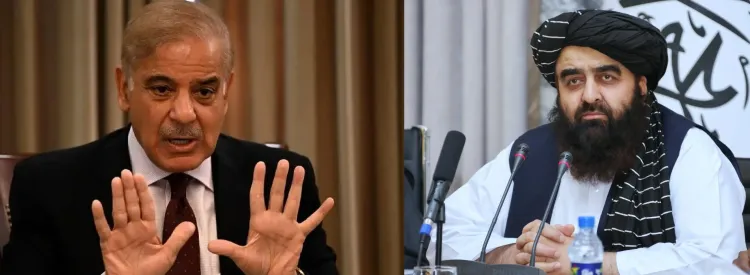Concerns Arise in Pakistan Following India-Taliban Discussions on Afghan Policy

Islamabad, Jan 11 (NationPress) The meeting of the Indian Foreign Secretary with the acting Foreign Minister of Taliban-controlled Afghanistan in Dubai this past week has triggered significant anxiety for Pakistan's political and military authorities. Numerous analysts are advocating for an urgent review of Islamabad's aggressive strategy concerning Kabul.
On Wednesday, Indian Foreign Secretary Vikram Misri engaged with the Acting Foreign Minister of Afghanistan, Amir Khan Muttaqi, in Dubai, where they addressed a variety of topics related to their bilateral relations and regional developments.
This meeting occurred just two days after India condemned the recent Pakistani airstrikes on Afghanistan, which resulted in the deaths of 46 individuals, including women and children.
In light of the Afghan side recognizing India as a significant regional and economic partner, calls for a comprehensive reassessment of Afghan policy have intensified in Pakistan.
According to sources speaking to IANS, confidential meetings are currently being convened in Islamabad as key officials explore the country's future strategies regarding its volatile neighbor.
The situation is compounded by the escalating tensions along the Pakistan-Afghanistan border and the increasing distrust between the two nations, along with the Taliban's outreach to other regional powers, particularly India.
"For Pakistan, this must serve as a wake-up call. It is crucial to remember that India was a key player in Afghanistan prior to the Taliban's resurgence. New Delhi invested around $3 billion in Afghan reconstruction projects, and members of the northern alliance maintain positive ties with India," stated Amir Rana, a strategic analyst.
"While India is proceeding with caution regarding the Taliban, progress is undeniably being made. This shift occurs at a time when Pakistan's relationship with Afghanistan has deteriorated significantly," he added.
Pakistan has labeled the Tehreek-e-Taliban Pakistan (TTP) as a critical issue and has consistently urged the Taliban-led Afghan interim government to take strong action against the group.
"Pakistan cannot sustain a hostile neighbor to the West. One perspective is that Islamabad should directly address the TTP issue with the Taliban leadership in Kandahar, where true power resides," Rana noted.
"The Taliban issued a fatwa in 2023 prohibiting its members from conducting jihad within Pakistan. This could be leveraged to persuade the Taliban to relocate the TTP and other anti-Pakistan factions away from the border," suggested the strategic expert.
It is essential to recognize that Pakistan's current policy towards Afghanistan, which emphasizes less dialogue and a more assertive stance, has not produced favorable outcomes thus far.
Historically, Pakistan has expressed serious concerns over what it perceives as India's influence and presence in Afghanistan. These worries could resurface if Islamabad continues with its current approach.
"The option for negotiations remains open. Pakistan can collaborate with regional states to pressure the Taliban for swift counter-terrorism actions. A further deterioration in Afghanistan-Pakistan relations could exacerbate the already precarious security landscape and provide increased maneuvering space for other nations," remarked Rana.








